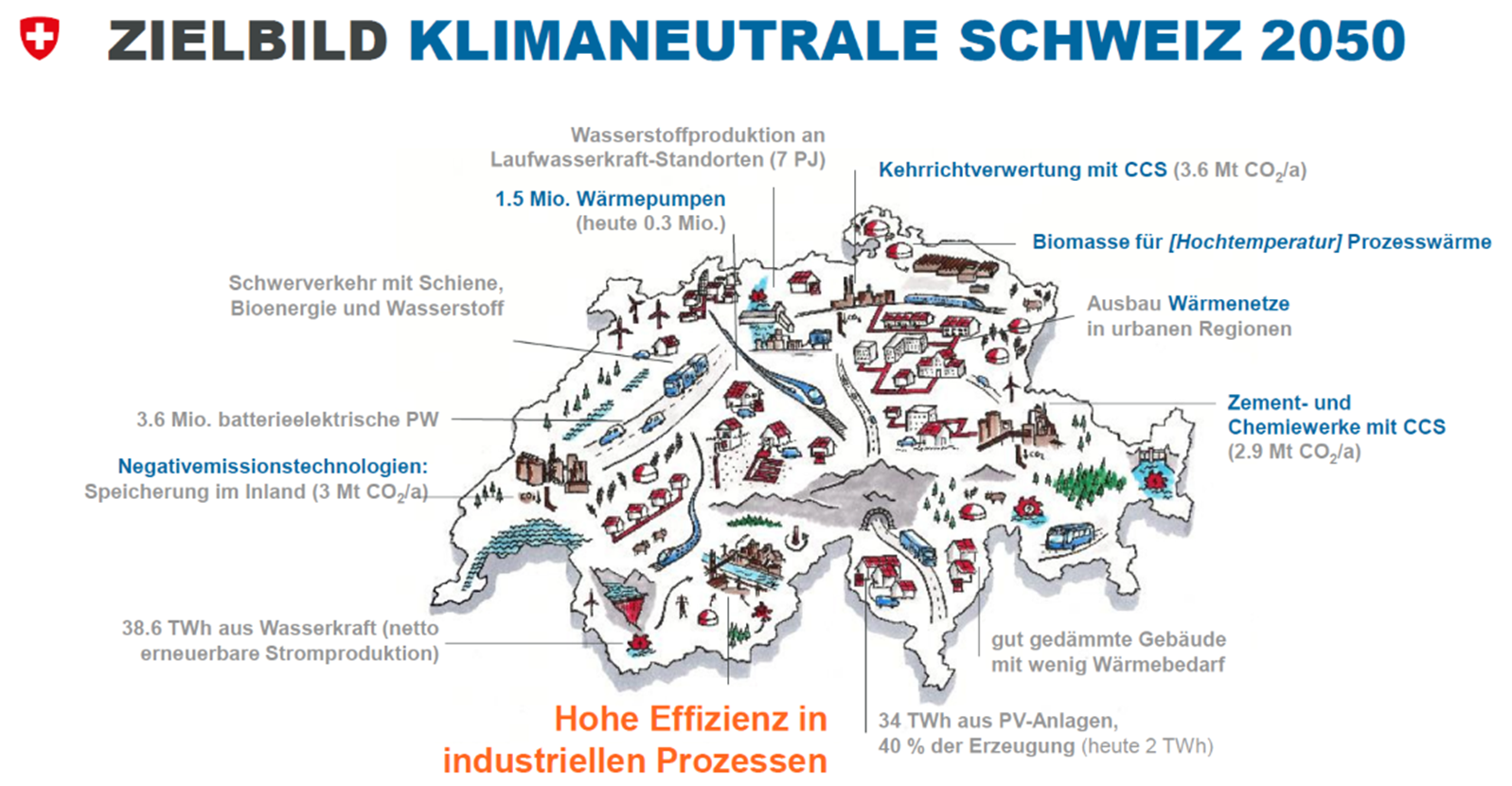DeCarbCH Wiki Introduction
Decarbonization encyclopedia, created and edited by SWEET DeCarbCH members.
Switzerland policies
Switzerland's commitment to carbon neutrality is reinforced by the acceptance of the climate and innovation act law passed the 18 of June 2023. Policies to achieve this commitment would be necessary and will encompass a wide range of areas, including energy production, transportation, buildings, and industry.
The Swiss Federal Office of Energy has developed a heating strategy to guide the energy transition in this area. Recognizing the significant impact of the heating sector on greenhouse gas emissions, it outlines a multifaceted approach to improves its heating systems and achieve carbon neutrality. Here are some key elements of Switzerland's heating strategy shown graphically:

SWEET – “SWiss Energy research for the Energy Transition” – is a funding programme of the Swiss Federal Office of Energy (SFOE). SWEET’s purpose is to accelerate innovations that are key to implementing Switzerland’s Energy Strategy 2050 and achieving the country’s climate goals. SWEET DeCarbCH is one of the four consortia which were granted found from the first call of the SFOE, the SWEET Call 1-2020: “Integration of renewables”. Two consortia were chosen for the call SWEET Call 1-2021: “Living & Working”, one consortium for the SWEET Call 1-2022: “Co-Evolution”, and one for the SWEET Call 2-2022: “Sustainable Fuels”.
SWEET DeCarbCH is active in all of the strategies and technologies presented in the carbon neutral heating strategy for 2050 of Switzerland: heat pumps, solar energy, negative emission technologies, thermal grids, heat storage, industrial process efficiency, digital twin, as well as the social and legal aspect of the industrial decarbonization of Switzerland.

The SWEET Projects
SWEET – “SWiss Energy research for the Energy Transition” – is a funding programme of the Swiss Federal Office of Energy (SFOE). SWEET’s purpose is to accelerate innovations that are key to implementing Switzerland’s Energy Strategy 2050 and achieving the country’s climate goals. SWEET DeCarbCH is one of the four consortia which were granted found from the first call of the SFOE, the SWEET Call 1-2020: “Integration of renewables”. Two consortia were chosen for the call SWEET Call 1-2021: “Living & Working”, one consortium for the SWEET Call 1-2022: “Co-Evolution”, and one for the SWEET Call 2-2022: “Sustainable Fuels”.
SWEET DeCarbCH
SWEET DeCarbCH is active in all of the strategies and technologies presented in the carbon neutral heating strategy for 2050 of Switzerland: heat pumps, solar energy, negative emission technologies, thermal grids, heat storage, industrial process efficiency, digital twin, as well as the social and legal aspect of the industrial decarbonization of Switzerland.
- Introduction
- Technologies
- Social Science
- Policies